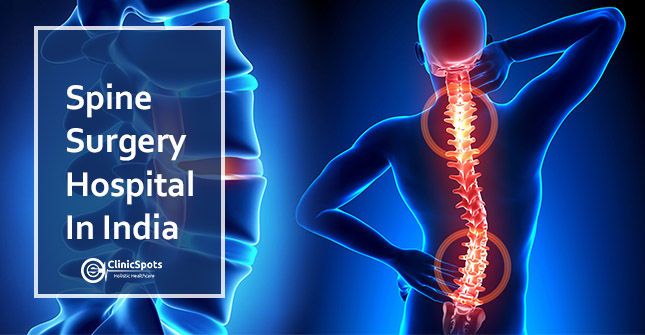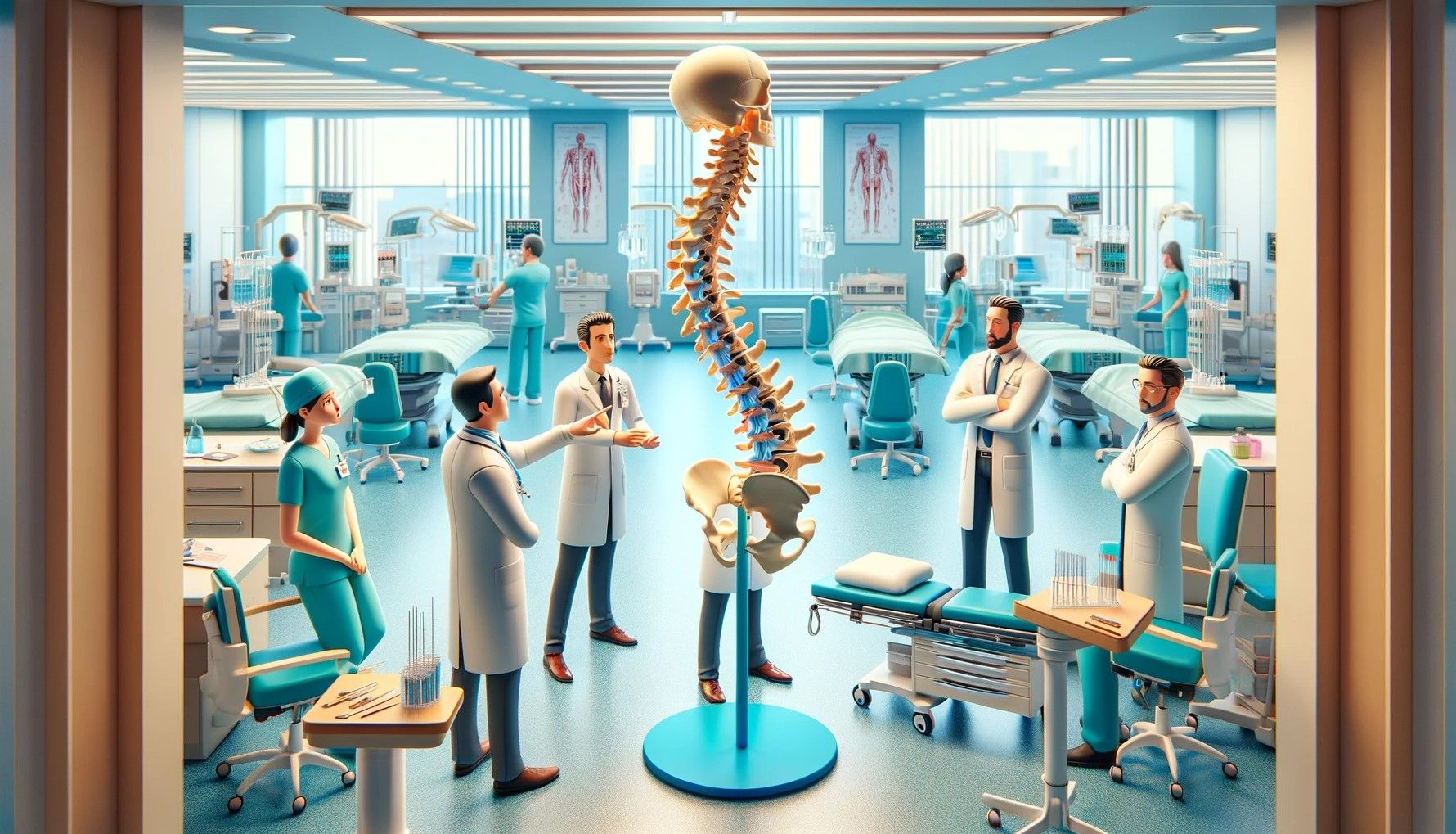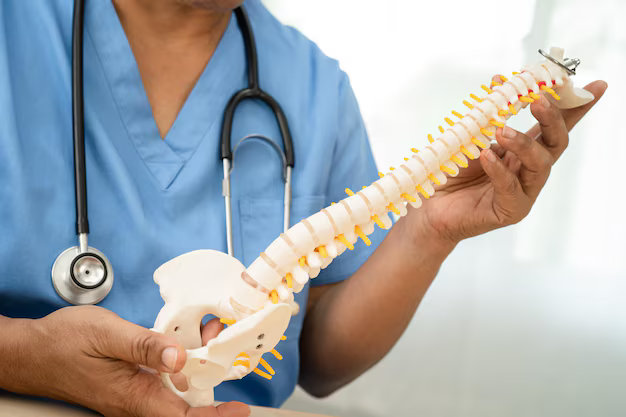Overview
Spine surgeries are becoming more common worldwide. By 2021, around 32 million spine surgeries had been performed. Some of the most common procedures include lumbar fusion, discectomy, cervical fusion, and scoliosis correction. With advancements in medical technology, minimally invasive techniques are becoming more popular, making surgery safer and recovery faster.
Several factors are driving the increase in spine surgeries, including:
1. Aging population – As people get older, spinal issues become more common.
2. Rising obesity rates – Extra weight puts pressure on the spine, leading to problems.
3. Better awareness – More people are now seeking treatment for back and spine issues.
In this growing field, some top spine surgeons are making a difference with their expertise and innovative techniques. Let’s take a look at 10 of the best spine surgeons in the world, known for their skill, experience, and contributions to the field.
Key Factors to Consider When Choosing the Best Spine Surgeon in the World
Choosing the right spine surgeon is a big decision that can impact your health and recovery. With so many options available, it’s important to do your research and find a surgeon who is skilled, experienced, and cares about your well-being. Here are some key things to consider before making your choice:
- Credentials & Experience – Ensure the surgeon has the proper education, training, and years of experience in spine surgery. Ask how often they’ve performed your specific procedure.
- Reputation & Success Rate – Get referrals from your doctor, friends, or family. Look into patient reviews and ask about the surgeon’s success rate with similar procedures.
- Hospital & Support Team – Check their hospital affiliation. A well-equipped hospital with a strong support team, including nurses and physical therapists, can improve your recovery process.
- Patient Communication & Care Approach – A good surgeon listens to your concerns, explains all treatment options (including non-surgical ones), and ensures you are part of the decision-making process.
- Post-Surgery Care & Follow-Up – Recovery doesn’t end after surgery. Ask about their follow-up care, rehabilitation programs, and how they handle any post-surgical concerns.
Take the First Step Toward a Pain-Free Life! – Schedule a consultation with a top spine surgeon today and get expert guidance on the best treatment options for your condition.
Top 10 Spine Surgeons In The World
Doctor Name | Years of Experience | Expertise | Location |
Dr. Arvind Jayaswal | 39+ years | Spinal deformities, degenerative disorders, trauma | India |
Dr. Sajan K. Hegde | 30+ years | Complex spine conditions, spinal instrumentation | India |
Dr. Alexander Vaccaro | 30+ years | Spinal trauma, deformities, spinal cord injuries | USA |
Dr. G. Balamurali | 20+ years | Minimally invasive spine surgery, endoscopic surgery | India |
Dr. Prem Pillai | 20+ years | Minimally invasive spine surgery, disc replacement | Singapore |
Dr. Todd J. Albert | 30+ years | Cervical spine surgery, image-guided spine surgery | USA |
Dr. Ben Okafor | 25+ years | Complex spine surgery, pain management | UK |
Dr. Bobby Anand | 15+ years | Minimally invasive spinal techniques | UK |
Dr. Naoto Kobayashi | 25+ years | Degenerative spine disorders, spinal imaging | Japan |
Dr. Eyup Bakmaz | 27+ years | Spine surgery, orthopaedics, traumatology | Turkey |
Best Spine Surgeons around the World
1. Dr. Arvind Jayaswal (India)
Dr. Arvind Jayaswal, a senior consultant at Fortis Hospital, specializes in spinal deformities, trauma, and degenerative disorders. With 39+ years of experience, he is an expert in minimally invasive techniques, helping patients recover faster with less postoperative pain.
Specialization: Spinal deformities, degenerative spinal disorders, spinal trauma
Key Achievements:
- Senior Consultant for Spine Surgery at Fortis Hospital, Noida
- 39+ years of experience in spinal surgeries
- Expert in minimally invasive techniques for faster recovery
- Treats scoliosis, kyphosis, and spinal trauma
Schedule an appointment with the world's top spine surgeons and receive expert care for your spinal condition.
2. Dr. Sajan K. Hegde (India)
Dr. Sajan K. Hegde is a pioneer in spinal instrumentation and complex spinal surgeries. He introduced modern spine surgery techniques in India, performed the country’s first lumbar disc replacement, and led Asia’s first robotic-guided spine surgery, revolutionizing spinal treatment
Specialization: Complex spine conditions, spinal instrumentation, deformity surgery
Key Achievements:
- First Indian to perform deformity surgery using Cotrel-Dubousset system
- Introduced modern spinal instrumentation in India
- Performed India’s first lumbar disc replacement (2004)
- Pioneered robotic-guided spine surgery in Asia (2012)
3. Dr. Alexander Vaccaro (USA)
Dr. Alexander Vaccaro, President of Rothman Orthopaedics, is globally renowned for spinal trauma and deformities. With 30+ years of experience, he has authored 650+ research papers and pioneered minimally invasive techniques to improve surgical outcomes and patient recovery.
Specialization: Complex spinal deformities, spinal trauma, spinal cord injuries
Key Achievements:
- President of Rothman Orthopaedics at Jefferson Health
- Over 30 years of expertise in spine surgery
- Published over 650 research papers & 54 textbooks
- Pioneer in minimally invasive spine techniques
4. Dr. G. Balamurali (India)
Dr. G. Balamurali, founder of the Balamurali Spine Foundation, has performed over 10,000 spine surgeries. A pioneer in endoscopic and microdiscectomy techniques, he has transformed spine surgery in India and won prestigious awards, including the Padma Shri in 2010.
Specialization: Minimally invasive spine surgery, spinal trauma, endoscopic surgery
Key Achievements:
- Founder of Balamurali Spine Foundation & Institute of Minimal Access Spinal Surgery
- Performed 10,000+ spine surgeries
- Recipient of Padma Shri Award (2010)
- Pioneer in endoscopic and microdiscectomy techniques
5. Dr. Prem Pillai (Singapore)
Dr. Prem Pillai, a leader in minimally invasive spine surgery, introduced 3D microsurgery and neuro-endoscopy in Singapore. As founder of the Minimally Invasive Spine Surgery Unit, he has successfully performed over 1,000 spine surgeries, revolutionizing spinal treatment in Asia.
Specialization: Minimally invasive spine surgery, disc replacement, spinal stenosis
Key Achievements:
- Founder of the Minimally Invasive Spine Surgery Unit, Mount Elizabeth Hospital
- Performed 1000+ successful spinal surgeries
- Introduced 3D microsurgery & neuro-endoscopy in Singapore
- Served on the Spine Committee of WFNS
Consult Today! Speak with a leading spine specialist to explore the best treatment options tailored to your needs.
6. Dr. Todd J. Albert (USA)
Dr. Todd J. Albert, Chief of Neurological Surgery at MGH and a Harvard professor, is a leading expert in cervical spine surgery. A pioneer in image-guided and minimally invasive techniques, he has made significant contributions to spinal surgery advancements worldwide.
Specialization: Cervical spine surgery, image-guided spine surgery, neuromodulation
Key Achievements:
- Professor at Harvard Medical School
- Pioneer in minimally invasive and image-guided technologies
- Leading researcher in spinal surgery innovation
7. Dr. Ben Okafor (UK)
Dr. Ben Okafor, a consultant spinal surgeon at The Royal London Hospital, specializes in complex spinal procedures, kyphoplasty, and pain management. With extensive research contributions, he is a key figure in advancing spinal surgery techniques in the UK.
Specialization: Complex spine surgery, pain management, spinal fusion
Key Achievements:
- Consultant Spinal Surgeon at The Royal London Hospital
- Published extensively in peer-reviewed journals
- Member of the British Orthopaedic Spine & Scoliosis Society
8. Dr. Bobby Anand (UK)
Dr. Bobby Anand, a consultant spinal surgeon at St. George’s NHS Trust, is an expert in minimally invasive spine techniques and conservative treatments. He also volunteers as a surgeon for charitable organizations, improving spinal care accessibility globally
Specialization: Minimally invasive spinal techniques, conservative spine management
Key Achievements:
- Consultant Spinal Surgeon at St George’s NHS Foundation Trust
- Volunteer surgeon for various charitable organizations
- Board-certified in orthopaedic surgery
9. Dr. Naoto Kobayashi (Japan)
Dr. Naoto Kobayashi, a professor at Keio University, is a leader in degenerative spine disorders and minimally invasive surgery. His expertise in spinal imaging and diagnostics has significantly advanced spine treatments in Japan, benefiting countless patients.
Specialization: Degenerative spine disorders, lumbar disc herniation, spinal stenosis
Key Achievements:
- Professor & Chairman at Keio University School of Medicine
- Pioneer in minimally invasive spine surgery techniques
- Leader in Japan’s spinal research advancements
- Expert in advanced spinal imaging and diagnostics
10. Dr. Eyup Bakmaz (Turkey)
Dr. Eyup Bakmaz, a spine surgeon at Florence Nightingale Hospital, specializes in spinal trauma, reconstructive spine surgery, and orthopaedics. With 27+ years of experience, he has helped develop advanced spinal surgical techniques, improving patient outcomes.
Specialization: Spine surgery, orthopaedics, traumatology
Key Achievements:
- Leading spine surgeon at Florence Nightingale Hospital, Istanbul
- Over 27 years of experience in orthopaedic spinal surgeries
- Chief Assistant Specialist at Cerrahpaşa Medical Faculty
- Expert in spinal trauma and advanced reconstructive techniques
Schedule Your Appointment! Take the first step toward a healthier spine by booking a consultation with a trusted expert today.
Conclusion:
Spine surgery has advanced significantly, with top surgeons worldwide pioneering innovative techniques for better patient outcomes. These experts have revolutionized spinal treatments through research, cutting-edge technology, and minimally invasive procedures.Their contributions have made spine surgery safer, more effective, and accessible to millions.
References:


